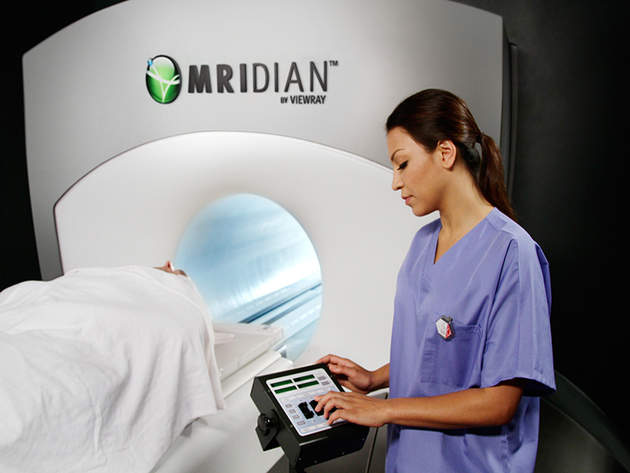

US-based ViewRay has initiated a clinical trial to evaluate its MRIdian system to treat patients with locally advanced unresectable pancreatic cancer.
MRIdian is a MRI-guided radiation therapy system being developed to identify, target and track the position and shape of soft-tissue tumours during radiation.

Discover B2B Marketing That Performs
Combine business intelligence and editorial excellence to reach engaged professionals across 36 leading media platforms.
Cleared by the US Food and Drug Administration (FDA), the system combines MRI technology and radiation delivery with the firm’s software.
The multi-centre, prospective and single-arm trial is the first study launched by the firm’s Clinical Cooperative Think Tank (C2T2) group that includes MRIdian clinical users.
C2T2 has been established to collect data for the validation of MR-guided radiation therapy and to pursue new approaches to improving survival and quality of life for pancreatic cancer patients.
The combination of live MR guidance and daily online treatment adaptation is expected to provide a new opportunity to treat cancer.

US Tariffs are shifting - will you react or anticipate?
Don’t let policy changes catch you off guard. Stay proactive with real-time data and expert analysis.
By GlobalDataC2T2 has reported positive results from a trial performed in 42 patients with locally advanced pancreatic cancer at US Universities, including Washington University, University of California, Los Angeles (UCLA), University of Wisconsin, and VU University Medical Center (VUmc).
According to the results, the combination of MR image-guided stereotactic dosing regimens and daily online adaptation demonstrated prolonged survival and low toxicity.
Trial’s lead investigator Parag Parikh said: “Based on compelling early evidence on the use of MRIdian to treat locally advanced pancreatic cancer, we are eager to further explore the system’s capabilities and associated toxicity, local control, and patient outcomes.
“We believe MRIdian’s excellent real-time visualisation of organs at risk within the abdomen and its daily treatment adaptation will allow us to deliver higher, more effective doses to the target while minimising impact on the normal surrounding tissue.”
Image: MRIdian radiation therapy system. Photo: courtesy of ViewRay.





